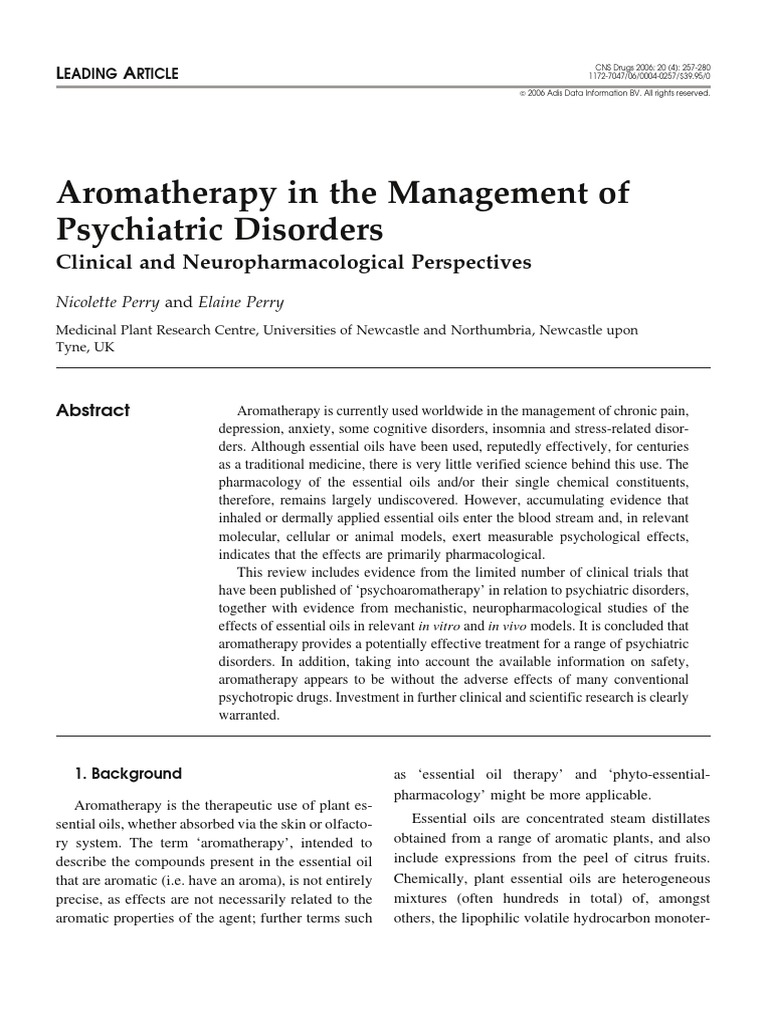

Aromatherapy, a holistic practice that uses essential oils, is increasingly recognized as a gentle support for mental health challenges. It offers a pathway to relaxation and emotional well-being, complementing other mental health approaches. Many individuals experience stress, anxiety, and mood fluctuations, and aromatherapy can be a valuable tool in managing these challenges. This article will delve into the potential benefits of aromatherapy for mental health, exploring how essential oils can create a soothing environment and promote overall well-being. We’ll also explore the science behind aromatherapy, discuss potential precautions, and provide practical tips on incorporating it into your daily life. Get ready to discover the power of aromatherapy and learn practical strategies to elevate your mental health journey.
Understanding the Connection Between Aromatherapy and Mental Health
Exploring the Science of Scent and Emotion
Aromatherapy works by stimulating the olfactory system, which directly connects to the limbic system in the brain. The limbic system is associated with emotions, memory, and behavior. When you inhale an essential oil, the scent molecules travel to the olfactory bulb, triggering a cascade of neurochemical responses that can influence mood, stress levels, and cognitive function. The specific effects of different essential oils often relate to their chemical composition. For example, lavender is often associated with relaxation, while peppermint might provide a mood lift. Research shows that various essential oils may modulate neurotransmitters such as serotonin and dopamine, which play vital roles in regulating mood and emotional states.
Essential Oils for Specific Mental Health Concerns
Managing Stress and Anxiety with Aromatherapy
Many individuals use aromatherapy for stress reduction and anxiety management. Lavender, chamomile, and bergamot are often recommended for their calming properties. Inhaling these oils can help slow your heart rate, lower blood pressure, and promote a sense of tranquility. For example, consider adding a few drops of lavender essential oil to a diffuser in your bedroom before bed for a calming bedtime routine. Studies have shown a positive correlation between aromatherapy techniques and lowered cortisol levels, the hormone associated with stress response.
Practical Application of Aromatherapy for Mental Health
Incorporating Essential Oils into Your Daily Routine
Incorporating aromatherapy into your daily routine can be as simple as diffusing essential oils, applying a few drops to a tissue or cotton ball, or adding them to a warm bath. Experiment to find what works best for you, and consider incorporating aromatherapy into different aspects of your daily routine, from morning meditation to relaxation exercises before bed. Aromatherapy can also complement other self-care methods like yoga, mindfulness practices, or meditation. Create a relaxing atmosphere, making the practice of aromatherapy a part of your mindfulness routine. Many individuals also create custom blends of essential oils tailored to their specific needs.
Safety Precautions and Considerations
Avoiding Potential Risks of Aromatherapy
While generally safe, aromatherapy should be approached with caution. Always dilute essential oils before applying them to your skin, and avoid using them if you have any allergies. Always consult with a healthcare professional before using essential oils if you have underlying health conditions or are pregnant or breastfeeding. Do not consume essential oils unless directed by a qualified aromatherapist. Understanding the potential risks associated with certain oils is crucial to ensure safe practice. Also, note that some oils may not be appropriate for everyone.
Related Post : Natural Scents That Calm the Mind: Exploring Aromatherapy for Stress Relief
The Holistic Approach to Mental Well-being
Integrating Aromatherapy into a Comprehensive Strategy
Considering aromatherapy as a complementary approach is essential. Combine this technique with other methods for managing your mental health needs such as exercise, balanced nutrition, and stress management techniques. A holistic approach involves considering all aspects of well-being. For instance, incorporating aromatherapy into a yoga practice can heighten the sense of calm and tranquility. Mindfulness exercises combined with essential oils create a powerful sense of self-care that may positively contribute to improved mental health.
In conclusion, aromatherapy offers a gentle, yet powerful, approach to supporting mental well-being. By incorporating essential oils into daily routines, individuals can potentially experience reduced stress, improved mood, and increased feelings of calm. Remember, aromatherapy is a complementary therapy, not a replacement for professional mental health care. If you are struggling with significant mental health challenges, please seek professional help. Explore the world of aromatherapy and discover how it can enhance your overall well-being and create a positive impact on your mental health journey today!